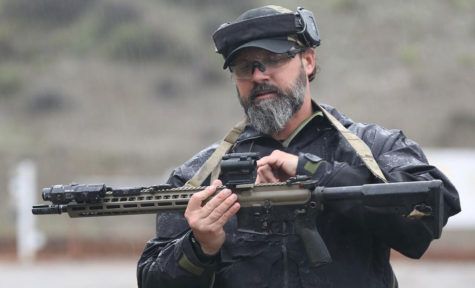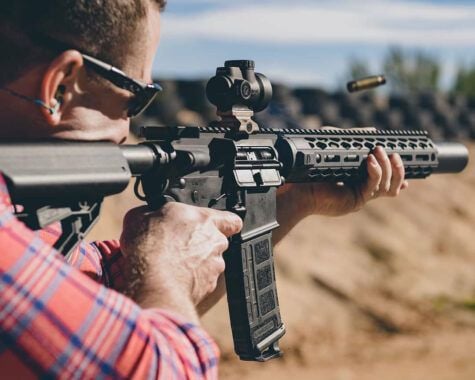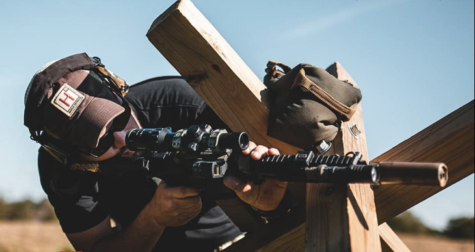
Finding a trained journalist who writes accurately and intelligently about firearms and who builds ARs in his spare time can be a challenge, but it’s the reality of who Stephen Gutowski is. With the recent launch of his new independent firearms-focused website, The Reload, Gutowski is providing his readers, including other journalists, sober and serious firearms reporting and analysis. We recently sat down with Gutowski to discuss The Reload’s launch, his perspective on firearms journalism, and where we stand with gun control proposals today.
Q: Stephen, thanks for joining us, and congrats on your success so far with The Reload. Can you give our readers a bit of background on who you are and why they should consider supporting the website?
Stephen Gutowski, The Reload – I’ve been a reporter for the last 15 years, and I’ve been focused on firearms policy and politics a good chunk of that time. I just recently left the Washington Free Beacon, which is a fantastic publication, to start my own publication called The Reload. It’s focused entirely on gun policy and politics, and we’re trying to accomplish serious, sober journalism. My goal is to write hard news stories about guns, gun culture, gun politics, gun law, litigation, and mixing all of that with expert analysis from someone who not only is a gun owner but is also a gun safety instructor and a gun enthusiast.
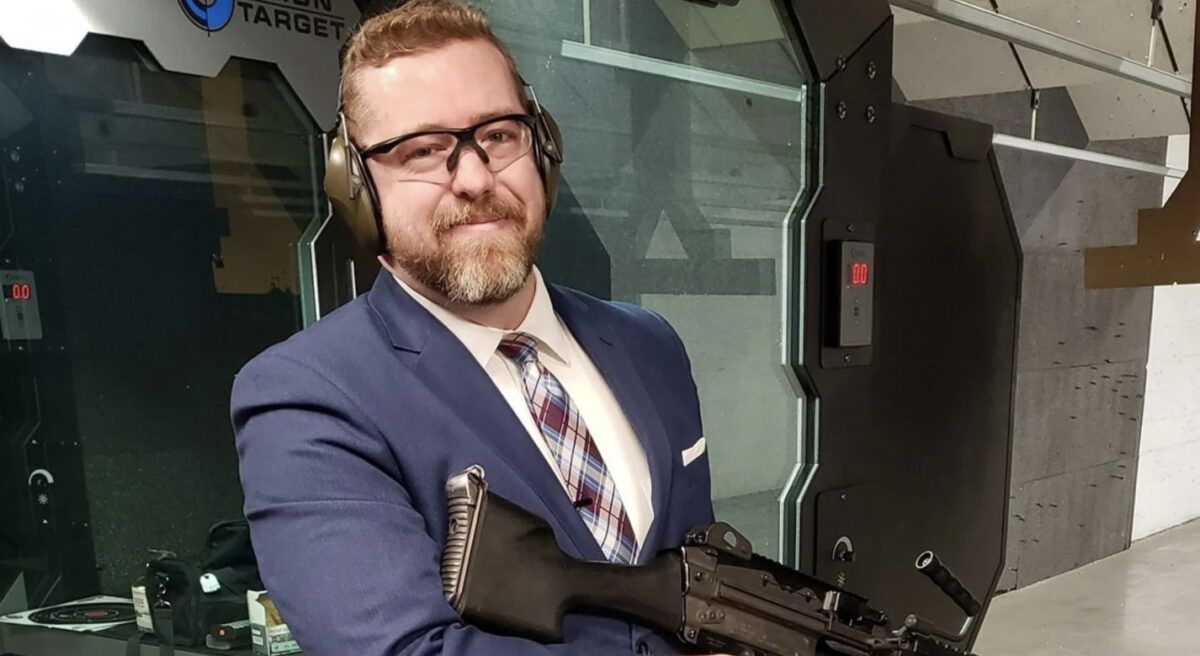
I like to build my own ARs, I like to shoot as much as possible, and I actually know something about firearms. I think that’s a key component to what The Reload is and what it’s trying to accomplish.
I think a lot of your readers have probably noticed the complete lack of knowledge within most media outlets on the topic of firearms, whether that is why people own guns, but also things like what our gun laws actually are, and how they work. That goes along with what certain proposals would actually do, and how they would actually impact gun owners. I think having informed reporting has been missing for a long time, and I have dedicated my career to trying to correct, as much as I am able to.
I’d also stress to your readers that The Reload is independent. There’s no backing from a big media company. It’s not funded by any gun control group, but it’s also not funded by the NRA or anything like that either. It’s totally independent and reader-funded. It’s funded by people who actually buy a membership to help and support my mission of informed, accurate journalism.

Q: Why do you think most journalists are so ill-prepared to cover firearms in a fair and thorough manner?
Stephen Gutowski, The Reload – Obviously, I think there is an ideological bias that happens in most major media that tends to side more with gun control arguments. A lot of journalists in major media come from bigger cities where the prevailing view is that more gun control is better and that guns are inherently bad, even though that’s not how most Americans feel about the issue. So, there is a built-in bias.
The bigger issue when it comes to firearms is ignorance. I think most actual reporters, ones who write stories, not the talking head types, want to get the facts right. Still, they often don’t on firearms because they just don’t know any better. While I agree that it is a reporter’s responsibility (and especially an editor’s responsibility) to make sure they are informed before they write about a topic, personally I think that it’s better for those who are better informed to try to help inform a journalist writing on the topic. This is something that I have tried to do in my career.
I like to try to help other journalists when they have questions on the topic of firearms policy and politics. I think it’s something that people should try to do when they encounter a journalist. Especially if you are able to give them the benefit of the doubt and explain to them the details…as opposed to not talking to them or being confrontational or rude to them.
On the inverse side, I think journalists need to make more of an effort to become informed, as opposed to just sticking to what the various talking points in the debate are. They need to learn what the actual facts are surrounding guns and gun laws.
While many of the “talking head, cable news opinion” people may not be able to have a constructive conversation about guns, I think most reporters, certainly not all, in my experience do care if they are wrong, and they do care if they are misinforming their audience, and they want to have a differing perspective on a story.
In that case, the best impact you can have is calmly explaining certain things to them, like how the laws work, how guns work. A lot of basic stuff gets screwed up, like the difference between semi-automatic and fully automatic or the idea that gun shows have some sort of special exemption from background checks and Federal law. These are factually wrong common mistakes, and I think these are things we can actually have an impact on with a real reporter by explaining and giving them real evidence as to why whatever they wrote or said was wrong.
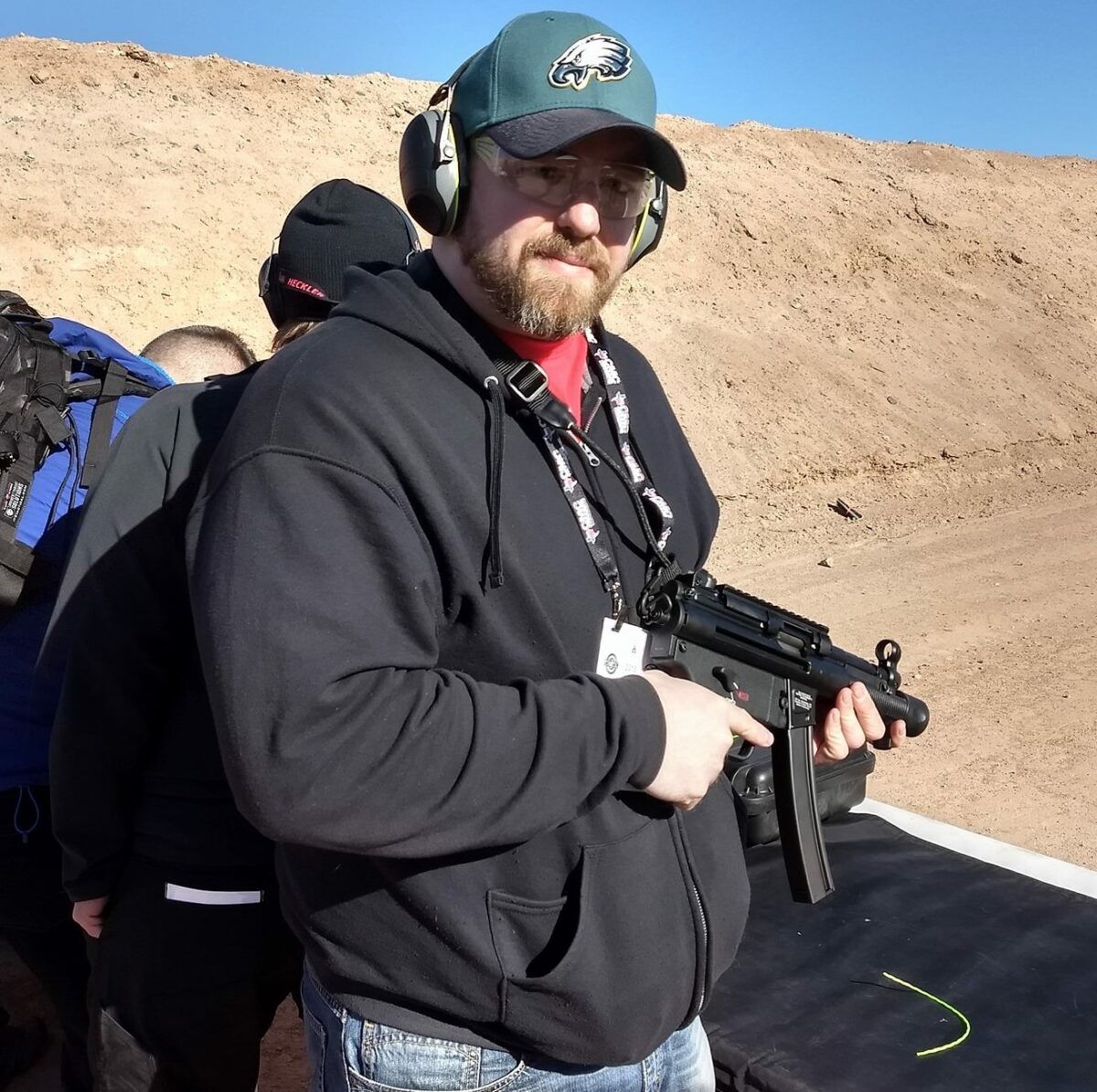
Q: Can you give us an overview of where we stand today, in your view?
Stephen Gutowski, The Reload – As far as where things stand on the Federal level, you do have President Biden, who is aggressively championing new gun control. He wants Congress to pass all sorts of things, including a ban on AR-15s, with the additional step of putting them all under the National Firearms Act, and requiring them to be registered or turned in. He has been pushing very hard for this. Still, the reality is that with a 50/50 split in the Senate and the margin in the House being very close, it is very difficult for Democrats to pass any significant kind of gun control legislation before the mid-terms.
What you are left with then are executive actions, which he is also aggressively pursuing. He has put a plan for five actions that he wants to take…some are non-controversial, like violence interruption programs that don’t actually impose new restrictions on guns, but some of them are likely to be very significant and likely lead to big fights with the gun rights movement.
This includes so-called “ghost guns,” or 80-percent lowers as most people might know them. He’s trying to use executive rulemaking to do that by going through the Department of Justice and the ATF to create new regulations that redefine what constitutes a firearm to make unfinished receivers fall under that definition and let the ATF regulate them as if they are finished parts. I obtained the draft for that rule and published it so people can go and see a copy of the 100+ page regulation that they are proposing.

The second thing that President Biden is trying to do through executive action, in a similar way, is trying to more heavily regulate AR pistols and pistol braces. We saw the ATF try this a few months ago at the end of the Trump Administration before they withdrew their guidance, but they essentially wanted to leave it fairly subjective as to what constitutes a short-barreled rifle that needs to be registered under the National Firearms Act, and what constitutes a legal pistol with a brace instead of a stock. These two moves have already been set into motion and are likely to cause long-term legal fights for the next several years.
Q: Would there be public comment periods as well?
Stephen Gutowski, The Reload – Yes, there would be public comment periods on both of those, and so there is an opportunity for the public to make enough of an uproar so that the Administration drops one or both of the proposals. We’ve seen that happen in the past. In the Obama Administration, they tried to ban the sale of green-tip 5.56 ammunition at one point. Due to the backlash, they gave up on that proposal, although you did also see under the Trump Administration, the bump stock ban was subject to public comment period, and that went through despite a significant amount of opposition.
The bottom line is it is not a given one way or another that either one of those regulations would make it through. Then, if they did go into effect, you would surely see multiple lawsuits filed against both of them as soon as they went into effect.
Q: So, what can people do to make their voices heard?
Stephen Gutowski, The Reload – I think the public comment period is much more than just a formality. If you look at the attempt to ban green-tip 5.56 ammunition, which was essentially foiled by the outpouring of opposition during the public comment period. Certainly, if people oppose these two regulations, that’s probably the top way for them to be heard and have a potential impact on the issue. It’s something that’s more than symbolic.
Q: Sometimes, you see a defeatist attitude and tired, unfunny jokes about boating accidents out there. What would you say to that sort of negative thinking?

Stephen Gutowski, The Reload – I think that the political reality is that politicians do, for the most part, what their constituents want them to do. And so, that’s where people can have a real impact by making their opposition to different gun control bills heard and their support for pro-gun bills heard. If you’re a gun-rights supporter, that’s your best bet beyond just showing up to vote for the candidates that are going to support your position the most.
Even if you live in an area that has a representative that you don’t agree with, reaching out to them and making your voice heard, even though that sounds cliché, really does have an impact. Look at someone like Joe Manchin in West Virginia, and Kyrsten Sinema in Arizona, or even Jon Tester in Montana. These are not hardcore gun rights advocates, but being contacted by their constituents with reasons on why they should vote against different gun control proposals could have a real impact on them.
In the end, that’s what might determine if the filibuster survives in order to restrict that bare majority control that could allow Democrats to pass a bunch of more radical gun control measures. As such, I really think that people getting involved and speaking with their representatives does legitimately have an impact…not just sending $15 to whichever gun-rights group, although that too, can have an impact. Getting out in person, even if you can’t have a one-on-one conversation with them, is even more impactful than signing a generic petition from somebody. You can have a real-world impact. One person may not sway their opinion when they represent millions, but I think you’d be surprised at how few people, percentage-wise, actually take the time to give reasoned feedback to their representatives.
###
